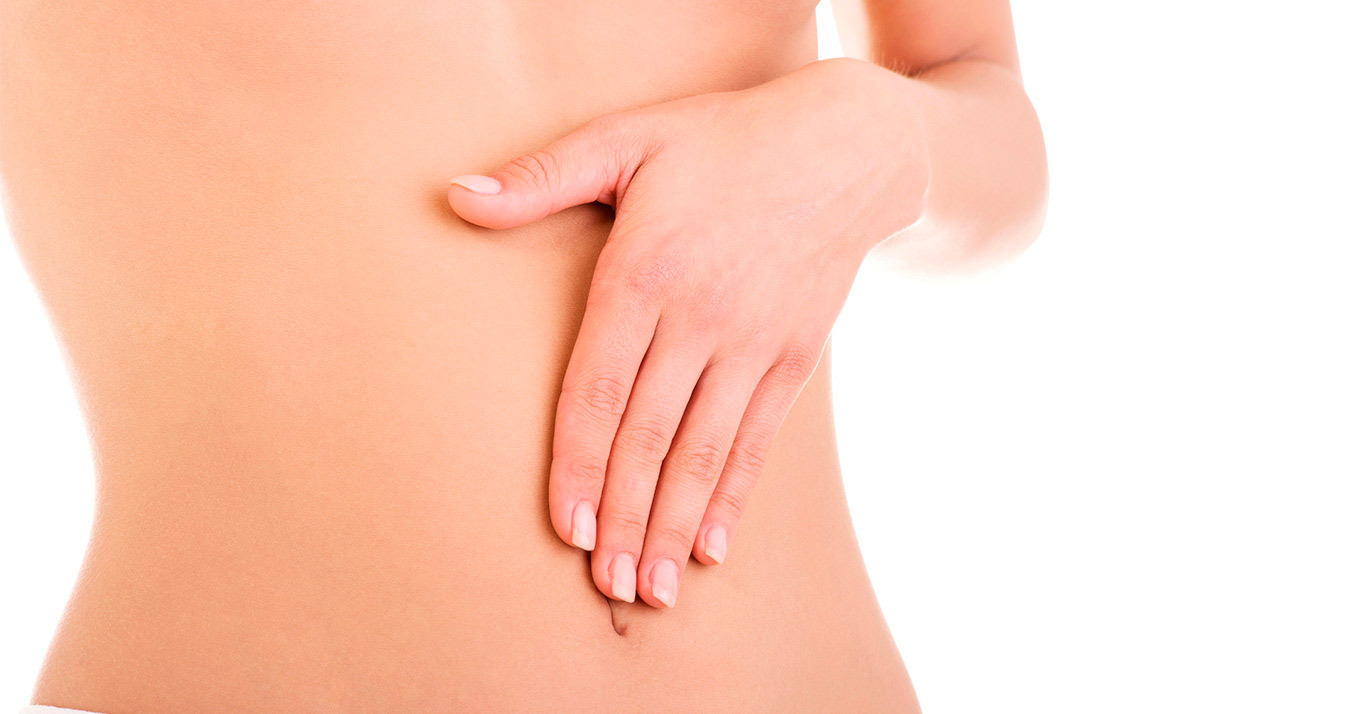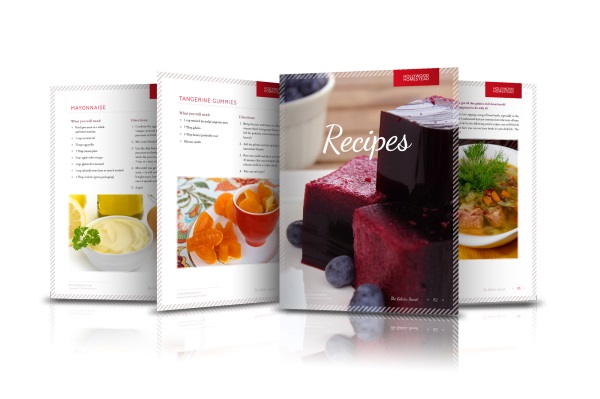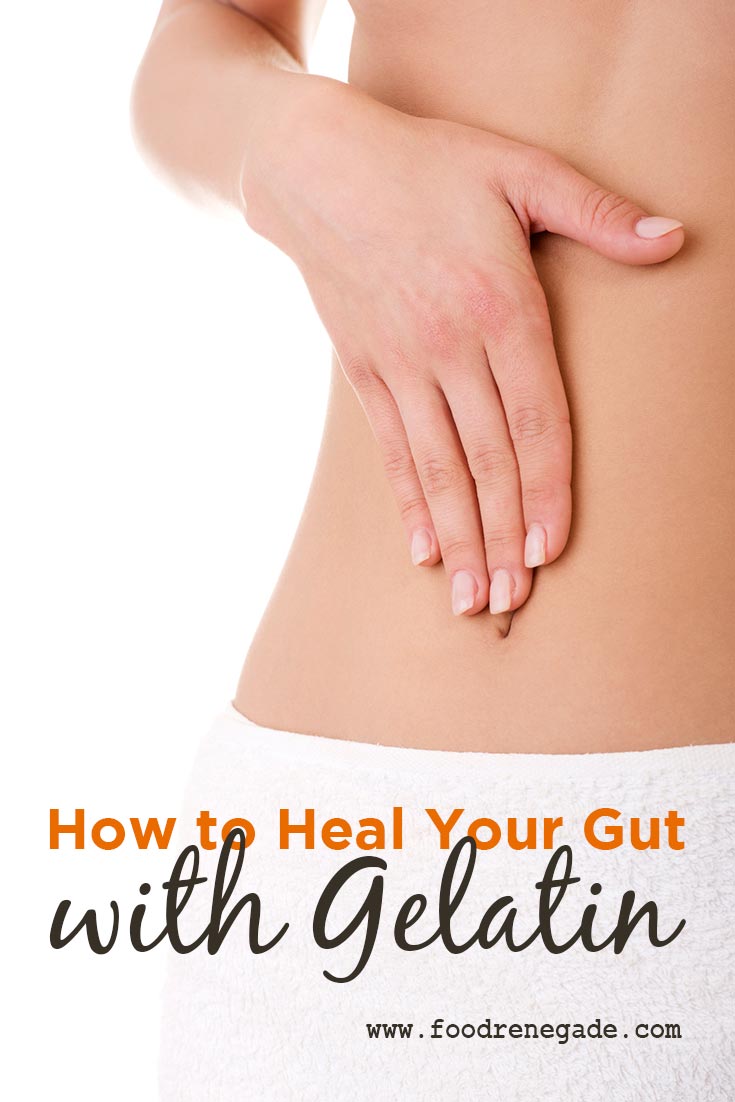
The prevalence of gut disorders like SIBO, IBS, Crohn’s disease, and ulcerative colitis have skyrocketed in the past decade. While it is terrible that so many people are suffering from these diseases, there is one upside. We are finally talking about gut health!
Why Gut Health Matters
Gut health certainly doesn’t seem like a sexy topic. Yet, we are becoming increasingly aware of the importance of gut health. Below are just some of the reasons you should care about your gut (even if you don’t currently have gut problems).
The Gut is the “Second Brain”
Research in the new field of neurogastroenterology is coming up with some amazing findings. We now know that the gut isn’t just a place where digestion is handled.
The human digestive tract contains 100 million neurons. To put this in perspective, that’s more than found in the spinal cord and the entire peripheral nervous system. Neurotransmitters like serotonin and dopamine are also found in the gut.(1)
It shouldn’t be too surprising that the gut is actually linked to our emotional health. We’ve all felt “butterflies” in our stomachs in response to stress, after all. What is surprising is that it is a two-way street: just as stress can affect the gut; the gut can affect our minds.
This is great news for the millions of people suffering from GI disorders that were dismissed as “due to stress.” Yes, stress does affect conditions like ulcers and SIBO – but those same conditions could be causing the stress! (2)
Gut Flora is more important than we ever thought
In addition to all of the neurons in our gut, we’ve also got 100 trillion bacteria in our intestines alone. This is 10x the number of cells we have in our bodies!
We are only now learning about how important gut flora is to our overall health, yet the results are astounding. Research now shows that imbalances in gut flora are linked to:
The Gut Absorbs Nutrients
Each part of the digestive tract is important but the small intestine is key when it comes to absorbing nutrients.
The inner wall of the small intestine (called the mucosa) is covered in finger-like projections called villi. The villi increase the surface area of the gut so nutrients can be absorbed better.(7)
If your gut is damaged, then it will not be able to absorb nutrients efficiently. No wonder people with conditions like celiac disorder have higher rates of nutrient deficiencies.(8) Take as many supplements as you want – it will be for nothing if your body isn’t absorbing them!
Why You Might Need Gut Healing
We know that a damaged gut can lead to all sorts of health problems. But what would cause your gut to be damaged in the first place? There are two leading causes:
1. Poor Diet
Today, most people eat a diet which consists of mostly junk foodstuffs that irritate the lining of the gut. Eating these foods occasionally wouldn’t be a problem. However, when you eat junky proinflammatory foods on a daily basis; it can cause gaps to occur in your gut mucosa.
Sugary foods (including “healthy” carbs like whole grains) also can cause problems. Certain types of bacteria in the gut love these sugary foods and feed off of them. The result is an imbalance in gut flora.
2. Antibiotic Use
While antibiotics certainly have their place, we are in the midst of a crisis because of how over-prescribed antibiotics are.
Antibiotics indiscriminately kill off bacteria in your body – including the “good” bacteria. This too can lead to an imbalance in gut flora.(9)
Gelatin: The Gut-Healing Superfood
Gelatin is the name for cooked collagen which is the most abundant protein found in our body. It is primarily made up of the amino acids glycine and proline. It also happens to be a gut-healing superfood!(10)
There are three main ways that gelatin will heal your gut:
1. Gelatin Heals the Gut Lining
The lining of the gut contains collagen and adequate intake of collagen is crucial for maintaining it. When you consume gelatin, it basically acts like spackle to fill any holes you have in your gut. Gelatin also lines the gut mucosa to guard against further injury. (11, 12)
2. Gelatin Reduces Inflammation
Inflammation is your gut’s worst enemy. When your gut becomes inflamed (such as from food sensitivities), holes appear in it. Partially-digested food is able to escape through those holes in a condition called Leaky Gut Syndrome.
Here is where things get bad.
The body mistakes those foods for harmful invaders and sends its “army” to attack them. The immune system becomes overactive and can start attacking itself, aka autoimmune disease.
Not only will gelatin help fill these holes in your gut, but studies show that gelatin reduces proinflammatory markers.(13,14)
3. Gelatin Increases Gastric Acid Production
Wait, increases gastric acid production? Then won’t gelatin cause ulcers???
Contrary to what all those heartburn medicine ads tell you, our bodies need gastric acid for healthy digestion. In fact, a deficiency of gastric acid causes heartburn!
Without enough gastric acid, your body isn’t able to break down foods properly. Bacteria feed off of the food and produce gas as a byproduct. This results in inflammation which is what pushes stomach acids into your esophagus causing those terrible heartburn symptoms. (15, 16)
How to Eat Gelatin to Heal the Gut
The good news is that it is easy to get the health benefits of gelatin. There are a lot of ways to add gelatin to your diet.
- Drink Bone Broth: Bone broth is naturally rich in gelatin. No wonder it has been the go-to remedy for GI ailments for centuries!
- Eat Gelatin: You can make gelatin desserts or just add a scoop of gelatin to a smoothie. Just know that the quality of gelatin matters if you want health benefits.
- Use Hydrolyzed Collagen: Remember, gelatin is just cooked collagen. You can get the same benefits of gelatin by taking collagen. The only difference is that gelatin gels and collagen won’t – which means you can put it into your morning tea or coffee. Read more about the Difference between Gelatin and Collagen.
Want to learn more about how gelatin can revitalize your health?
Read The Gelatin Secret: The Surprising Superfood which Transforms Your Health and Beauty. You’ll not only learn all about how to utilize gelatin, but also get lots of great paleo-friendly gelatin recipes.


 |
















A hospital consultant recommended apple pectin to heal the gut along with certain probiotics to replace what had been killed off. (My partner had been given penicillin by his dentist and had a severe reaction)
I agree – just haven’t found organic pasture feed sources
This sounds helpful. I am wanting to find a good probiotic as I have anxiety and it seems to flare up with certain foods. I have been trying to avoid wheat and too much sugar, but I am also underweight from this ( higher protein, veg, brown rice diet) as I have pyroles. Any suggestions would be much appreciated! I am ravenous sometimes, what to eat?!
I was diagnosed a few weeks ago with SIBO
And have read articles and ordered books and probiotics on line. I am on my second week of Xifaxan and neomycin and found a wonderful female Do Gastrointestinal dr. I shared my books today with her since all doctors treat it differently.
I went on a gluten and lactose free diet and lost 8 lbs and am thin in nature. Going to try the probiotics in a week and gelatin as well. How much gelatin should I put daily in my tea? I am very proactive and will continue to get rid of the methane !! My fr doesn’t like to use a repeated breath test and feels they are positive negative at times with her IBS SIBO patients.
Thank you for this information. what is your opinion of mixing gelatin with papaya juice/ papain enzyme?
And why wouldn’t that be okay?
Syvie,
I’m unsure of your education/qualifications and it’s bothersome to read about mothers with stating that they are a wife first. However, I have no idea who Eric is as he’s not introduced.
Gelatin is not as easily absorbed as hydrolyzed collagen. However, both do have the exact same amino acid profile.
Hi,
of course grass fed gelatin will always be healthier, but can you point to any research saying that the quality of the gelatin makes a significant difference for its gut healing benefits? I live in a part of the world where I can get the basic stuff, or invest a lot of money to import from the US.
Also, for regular gelatin (not hydrolized): do I have to wait until it gels, or can I drink it liquid? I’ve done both and I’m fine with both, but wondering if one of them has more benefits.